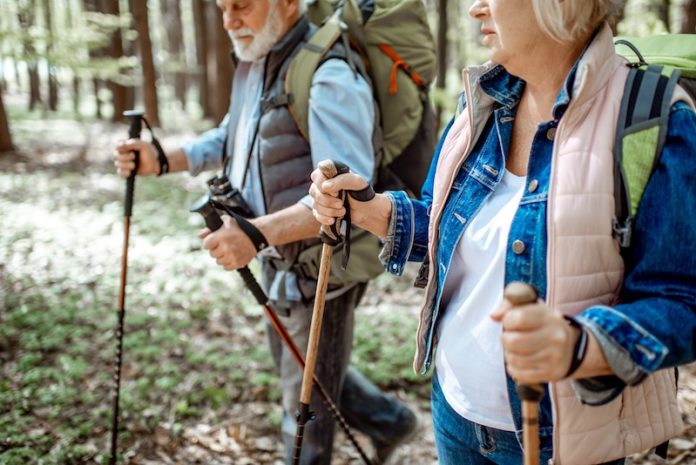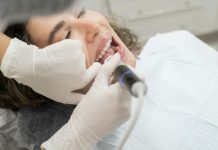
A recent study conducted by the University of Maryland School of Public Health highlights the positive impact of walking on brain health.
The research demonstrates how walking can strengthen connections within and between three essential brain networks, including one associated with Alzheimer’s disease.
This study adds to the growing body of evidence suggesting that regular exercise plays a crucial role in enhancing brain function and delaying cognitive decline in older adults.
The study focused on examining brain networks and story recollection abilities in older adults with normal cognitive function and those diagnosed with mild cognitive impairment, a condition characterized by a slight decline in mental abilities such as memory, reasoning, and judgment—a known risk factor for Alzheimer’s disease.
Over time, individuals with cognitive impairment and Alzheimer’s disease experience deterioration and disconnection within these brain networks, resulting in cognitive decline and memory loss.
The Exercise Intervention
Thirty-three participants, aged between 71 and 85 years, engaged in supervised walking sessions on a treadmill four days a week for a period of 12 weeks.
Before and after this exercise regimen, participants were tasked with reading a short story and recalling it aloud with as many details as possible.
Additionally, functional magnetic resonance imaging (fMRI) was used to assess changes in communication within and between three key brain networks associated with cognitive function:
Default Mode Network: Activates when individuals are not engaged in specific tasks and is linked to the hippocampus—the brain region commonly affected by Alzheimer’s disease. It plays a role in Alzheimer’s-related amyloid plaque formation.
Frontoparietal Network: Regulates decision-making during task completion and is closely tied to memory functions.
Salience Network: Monitors external stimuli and directs attention accordingly, facilitating network switching for optimized performance.
Positive Outcomes
Following the 12-week exercise program, participants demonstrated significant improvements in their ability to recall the story.
Moreover, functional MRI scans revealed enhanced brain activity, stronger synchronization, and increased connectivity within and between the three brain networks.
Principal investigator J. Carson Smith, a kinesiology professor at the School of Public Health, highlighted the promising implications of the study’s results.
The enhanced brain activity and connectivity observed post-exercise suggest that physical activity can induce neuroplasticity—the brain’s ability to adapt and change.
These findings provide hope that exercise may serve as a preventive or stabilizing measure for individuals with mild cognitive impairment, potentially delaying their progression to Alzheimer’s dementia.
This study reinforces the notion that exercise, particularly walking, is a powerful tool for promoting brain health in older adults.
By strengthening connections within and between essential brain networks, exercise offers the potential to improve cognitive function and delay the onset of cognitive decline associated with conditions like mild cognitive impairment and Alzheimer’s disease.
The findings underscore the importance of incorporating regular physical activity into the daily routines of older individuals to support and protect their cognitive well-being.
If you care about brain health, please read studies about how the Mediterranean diet could protect your brain health, and Omega-3 fats and carotenoid supplements could improve memory.
For more information about brain health, please see recent studies about antioxidants that could help reduce dementia risk, and higher magnesium intake could help benefit brain health.
The research findings can be found in the Journal of Alzheimer’s Disease Reports.
Follow us on Twitter for more articles about this topic.
Copyright © 2023 Knowridge Science Report. All rights reserved.



